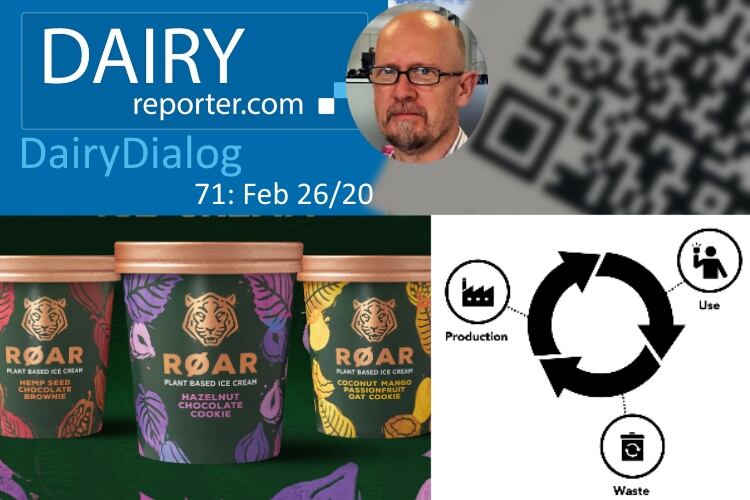New PreScouter report details promising and innovative zero waste technologies and initiatives fueling a more circular economy
PreScouter, a Chicago-based research intelligence company has released a detailed report on zero-waste technologies and initiatives that are fueling a more circular economy.
In North America, current recycling infrastructure doesn’t recover more than 10% of post-consumer plastics, and today’s supply of recycled plastics meets just 6% of real demand. Closed Loop Partners estimates the addressable market in Canada and the US for plastics and petrochemicals to be $120bn, which could be met, in part, by recovering waste plastics.
This is where PreScouter sees the significance of this report by presenting innovative technologies in place.
“Today we face several challenges when it comes to use of materials, plastic in particular. The two main ones being creating waste, especially after a very short use of the material, and using non-renewable resources to make the materials we need,” says Dr Marija Jovic, co-author and PreScouter technical director for the chemicals, materials & packaging industry.
Adopting circular-economy principles could not only have environmental and social benefits but could also generate a significant economic benefit, adds Jovic.
The report details 10 companies that fall under one of the two main circular economy categories: recycling and reusing. Most of the profiled technologies and initiatives cover plastic waste, but a few examples do delve into other types of waste such as garments and mobile phones.
Dr Marta Carvalho, researcher and co-author of the report, said, “By creating a circular economy, we can generate products that can be reused, minimizing the loss of their value and optimizing the use of resources. However, this is not so simple. We need to redesign our business models and develop new materials and disruptive production processes.
“We all need to take part; Customers need to change their way of buying products, rethinking their consumption patterns. Governments need to adopt legislatives and policy tools for promoting the circular economy model.”
The shift from a linear to a circular economy will not be easy, however we need this circular economy revolution to prosper and sustain our environment, creating a positive ecological, economic and social impact, Carvalho said.
Froneri launches new RØAR plant-based ice cream
Ice cream company Froneri has launched RØAR, a new plant-based ice cream suitable for vegans, which also supports the work of not-for-profit organization Panthera’s TIGERS FOREVER fund.
Created from plant-based ingredients, containing no palm oil and with all cocoa used UTZ Certified (part of Rainforest Alliance), RØAR is aimed at those who enjoy indulgence but who also want to make responsible food choices.
As a part of its wider commitment to social responsibility, animal welfare, and conservation RØAR has also formed a long-term partnership with Panthera, the only organization devoted exclusively to preserving the world’s endangered big cats.

Froneri CEO Ibrahim Najafi said, “We have launched RØAR in response to growing consumer demand for plant-based products. Recent research shows that plant-based meal occasions have increased by 37% in the last four years. But it isn’t just vegans who are embracing this – there has been a 92% increase in plant-based meals being eaten by non-vegans.
“While creating this indulgent plant-based ice cream with a conscience it also made perfect sense to link up with Panthera, giving financial support to their TIGERS FOREVER fund, as well as a range of their other education and awareness initiatives.”
Available in three flavors in a 500ml tub format: Hazelnut Chocolate Cookie; Coconut Mango Passionfruit Oat Cookie; and Hemp Seed Chocolate Brownie, RØAR has launched in the UK through Ocado and Tesco (from March 16). The RRP is £5.
Outside the UK it will be available in Germany and Finland.
Danone launches Baby Formula Track & Connect for consumers and retailers
Danone launched its baby formula Track & Connect service – a digitally-enabled service giving consumers and retailers greater transparency on the product’s farm-to-fork journey.
Through Danone’s Track & Connect service, consumers and retailers will eventually be able to access new data-driven, personalized after-sales support and services for its baby formula brands like Aptamil, Karicare, Laboratoire Gallia and Nutrilon.
Shoppers will be able to access the new service through their smartphones by scanning two QR codes on baby formula packs. This dual-QR code packaging innovation will see one QR code laser printed on the outer pack as well as a second, inner QR code laser printed behind a tamper-resistant seal, which can only be scanned after purchase.
Shoppers can scan a QR code on a baby formula pack to access a brand page containing verified information such as where and when the formula was manufactured and the product’s journey through the supply chain. After purchasing and opening the sealed pack, shoppers will then be able to scan a second, inner QR code – triggering a one-time, initial message, verifying the product is authentic.
Danone aims to leverage this dual-QR code packaging innovation to introduce customized after-sale support and services – such as health and nutrition apps and information, ‘how to’ parenting videos, and access to customer helplines or online e-commerce services.
The Track & Connect service will also allow Danone and its distributors and retailers to more easily forecast consumer demand and consumer preferences.
This new service is powered by blockchain, serialization and aggregation technology, which offer a safe and secure method of storing data and information on the movement of baby formula products through the supply chain.
David Boulanger, senior vice president, operations, Danone Specialized Nutrition, said, “We’re very pleased to be rolling out our baby formula Track & Connect service to consumers and retailers in 2020. Thanks to this innovation in packaging and data management, we’ll be able to offer one of the most comprehensive traceability services in the baby formula industry and connect more closely to our consumers and retailers to offer them after sales services they value.”
Danone is initially launching its baby formula Track & Connect service in China for its Aptamil and Nutrilon brands.
The company plans to roll out the service starting in 2020 in France for its Laboratoire Gallia brand, and in Germany, Australia and New Zealand for its Aptamil and Karicare brands.
Circular economy illustration: Getty Images/DragonTiger

